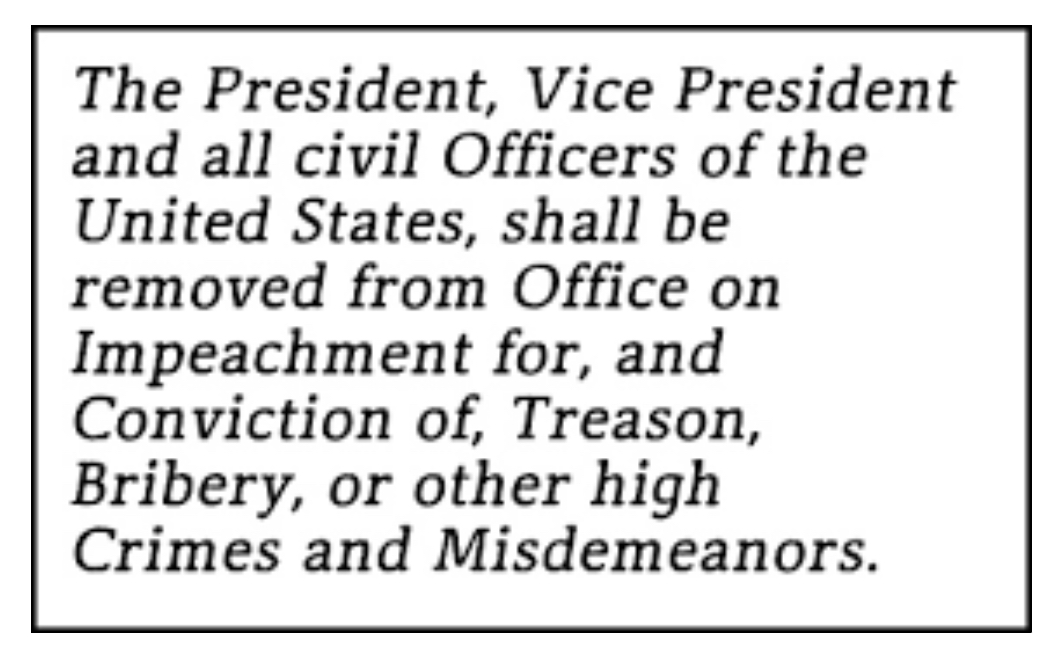Impeachment: A look at the basics
Impeachment, impeachment, impeachment. Because it’s a trending topic in today’s news, understanding the process and history of this constitutional provision is extremely important. Seen all over headlines, President Donald Trump is currently in the process of being impeached. But the question is, what really is impeachment?
Dr. Douglas Worthington, history teacher, explained, “To impeach is to bring charges against, although most people think it means to remove from office, but it does not. There are two stages of impeachment: the House of Representatives impeaches and the Senate holds the trial and votes on whether the person being charged should be removed. In the House of Representatives, they only need a simple majority to proceed with the process, but the Senate needs a two-third majority.”

Impeachment involves an official listing of potential wrongdoing which does not have to raise to the level of a crime in the normal understanding of the word. For example, articles of impeachment for President Nixon included abuse of power, obstruction of justice, and contempt of Congress, while President Clinton was charged with perjury before a grand jury.
Aside from the president and vice-president, who are elected, any high ranking appointed official, like cabinet members and judges, can also be impeached. If a person is actually impeached, nothing is necessarily bound to happen. But when the president is being impeached, the nation is affected. The vice-president would become the acting president until the next election.
Over the past several weeks, three committees of the House have conducted inquiries to gather information. The next step, to begin on Wednesday, November 13, will involve televised public hearings. The committees will then send their findings to the House Judiciary Committee which will write articles of impeachment if appropriate. The full House will vote on the articles and send them to the Senate, which will determine if the President should be removed from office.
Everyone agrees that the impeachment of a president, and even the process itself, is tremendously divisive to the country.
“I think people take impeachment too lightly, and it is a very serious matter to impeach and even more serious to remove. No president has truly been removed, not even Andrew Johnson,” Doc Worthington said.
WJ students actually understand impeachment a lot more than one might think. History teachers, in particular, understand the importance of talking about current events. Also, parents’ involvement in politics can influence student interest. Seniors will be able to vote in the upcoming election; therefore, they are forming political opinions.

Only two U.S. presidents have been formally impeached by Congress–Andrew Johnson and Bill Clinton. Additionally, only two other presidents have faced formal impeachment inquiries in the House: Richard Nixon and Donald Trump.
Senior Connor Cline said, “I understand the process of impeachment and removal of an officer. I learned about impeachment from Doc explaining it in my AP US History class.”
In addition to learning about what impeachment means, many other students at WJ are keenly interested in politics and the government.
Rebekah Verdun, a junior, said, “I am very interested in politics because they affect my day to day life and the affect they have on the structure of our country. What happens in politics right now will dictate how the economy is run when our generation joins the work force. It will also dictate the social dynamics of our society.”

Hi! My name is Margo Tipping and I am a senior here at WJ. I am a four year member in Harmony Gold Show Choir and have been in 6 productions with CenterStage...






